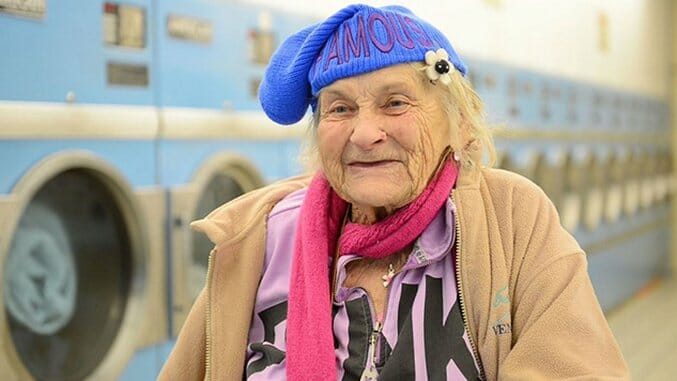Queen Mimi

Throughout this low-key but moving film that bears her name, the charismatic, ever-smiling octogenarian known as Mimi—who can count Zach Galifianakis and Renee Zellweger among her celebrity friends—expresses herself in punchy, memorable bursts of existential maxims. “Yesterday is gone, tomorrow isn’t here, live now” being just one of many that reflects both her sharp mind and affable personality. That she should be so focused on the present, on maintaining a mindset that understands the value of appreciating the good in life, is inspiring considering her circumstances and experiences.
When we first meet Mimi (real name: Marie Haist), she has been homeless for over 35 years. And for the past 18 of those, she’s reigned over a castle of sorts the Fox Laundry on Montana Avenue in Santa Monica, CA. After years of living in her vehicle and under doorways, Mimi became a fixture at the laundromat by helping the staff fold their customers’ laundry. Such was the affection she engendered that the Fox owner trusted her with a key to the front door and permission to sleep in the facility.
The reasons for her lack of a traditional home aren’t entirely explained—Mimi ‘s philosophy of leaving the past where it is sees to that—but the film clearly links her circumstances to her divorce in the mid-1970s. After years and years of submitting to the will of a controlling husband who wouldn’t let her apply her skills outside the home, she moved out of a house she could no longer afford, and only intermittently kept in touch with her kids.
-

-

-

-

-

-

-

-

-

-

-

-

-

-

-

-

-

-

-

-

-

-

-

-

-

-

-

-

-

-

-

-

-

-

-

-

-

-

-

-








































